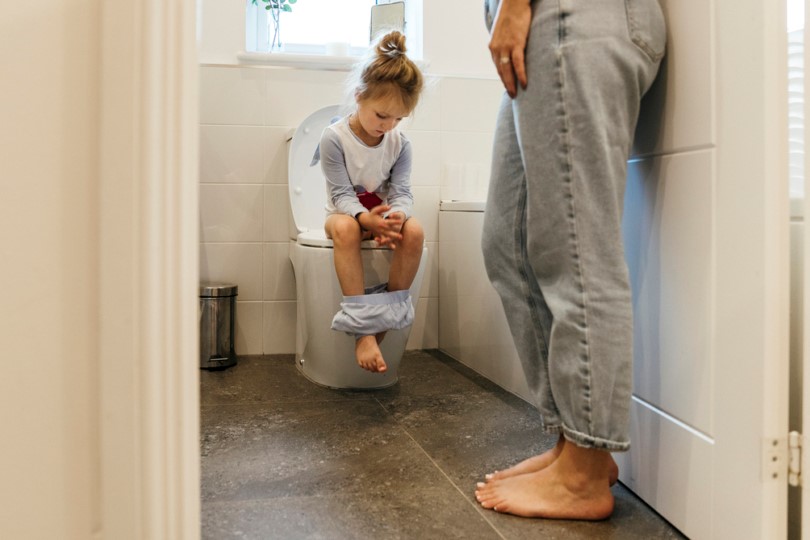
Diarrhoea: causes and what to eat
Diarrhoea is a condition characterised by liquid or semi-liquid stools, which are emitted several times over a twenty-four-hour period and which is often associated with a series of gastrointestinal symptoms such as belly cramps, bloating, sometimes nausea and vomiting
Two types of diarrhoea can be distinguished, acute forms that last only a few days and chronic forms.
In the case of chronic diarrhoea, the disorder tends to occur for more than a month and is often an indicator of an underlying disease, the causes of which should be investigated by a gastroenterologist.
Diarrhoea: what causes it
Acute diarrhoea in most cases is caused by:
- bacteria, such as Salmonella, Campylobacter, Shigella or Escherichia coli;
- viruses, such as Cytomegalovirus and Rotavirus;
- parasites, including Giardia lamblia, Cryptosporidium (parasitic infections can also cause chronic forms of diarrhoea);
- food poisoning;
- the intake of certain drugs, particularly antibiotics;
- the intake of contaminated water or food, usually during trips abroad to countries with poor sanitary conditions.
In the case of chronic diarrhoea, the differential diagnosis is more complex
Coeliac disease is an increasingly common condition that must be excluded in the case of chronic diarrhoea.
Another very frequent aetiology, especially in the case of long-standing forms and in the absence of symptoms and/or warning signs is irritable bowel syndrome.
Further causes of chronic diarrhoea are chronic inflammatory bowel diseases (IBD), which may be associated with the presence of blood and/or mucus in the faeces, complicated forms of diverticulosis, and neoplastic forms.
Also worth mentioning are iatrogenic forms (either from medication or as a result of surgery) and forms associated with pancreatic insufficiency: in the latter case we speak of steatorrhea.
What to eat when you have diarrhoea
In the acute phase of diarrhoea, greater control of the diet is advisable, considering that some foods can irritate the intestine, while others tend to help diminish the symptoms.
So what to eat when you have diarrhoea?
Make way for:
- rice
- potatoes
- apples
- bananas
- cereals
Lean meat, fish and eggs can also be taken, as long as they are well cooked and seasoned with a drizzle of raw oil.
It is also very important to keep hydrated: during episodes of diarrhoea, in fact, the body loses a lot of liquids that must be reintroduced.
For this reason it can be useful to take broth, especially chicken broth, perhaps accompanied by pasta, and hot tea or apple juice.
On the other hand, reduce irritating drinks, such as coffee or fizzy and sugary drinks, alcohol, over-processed foods, such as canned foods, raw vegetables, onions, citrus fruits, fried foods or foods seasoned with butter or spices, fatty meats and sweets.
How to get rid of diarrhoea: remedies
The diagnosis of diarrhoea is clinically based; especially in cases of chronic diarrhoea, the gastroenterologist will assess the need to investigate the causes through certain diagnostic tests.
In acute forms, in addition to dietary changes, the use of anti-diarrhoeal drugs aimed at inhibiting intestinal motility may be indicated.
When the diarrhoea is caused by bacterial or parasitic infections, treatment may involve taking targeted antibiotics that are usually combined with food supplements containing probiotics, which are useful for restoring the correct functioning of the intestinal flora.
Read Also
Emergency Live Even More…Live: Download The New Free App Of Your Newspaper For IOS And Android
Diarrhoea: What It Is, What Can Cause It And How To Intervene
What Is It And What Are The Symptoms Of Traveller’s Diarrhoea?
What Is Montezuma’s Revenge? An Overview Of Traveller’s Diarrhoea
Travel Pathologies: Economy Class Syndrome
Traveller’s Diarrhoea: Tips To Prevent And Treat It
When Is A Colonoscopy With Biopsy Necessary?
What Is Gastro-Oesophageal Reflux And How To Treat It
Vomiting Blood: Haemorrhaging Of The Upper Gastrointestinal Tract
Pinworms Infestation: How To Treat A Paediatric Patient With Enterobiasis (Oxyuriasis)
Intestinal Infections: How Is Dientamoeba Fragilis Infection Contracted?
Autoimmune Enteropathy: Intestinal Malabsorption And Severe Diarrhea In Children
Gastrointestinal Disorders Caused By NSAIDs: What They Are, What Problems They Cause
Intestinal Virus: What To Eat And How To Treat Gastroenteritis
Gastrointestinal Bleeding: What It Is, How It Manifests Itself, How To Intervene
Gastroenterology: What Is The Difference Between Gastritis And GERD?
Colonoscopy: What It Is, When To Do It, Preparation And Risks
Colon Wash: What It Is, What It Is For And When It Needs To Be Done
Rectosigmoidoscopy And Colonoscopy: What They Are And When They Are Performed
Ulcerative Colitis: What Are The Typical Symptoms Of The Intestinal Disease?
Wales’ Bowel Surgery Death Rate ‘Higher Than Expected’
Irritable Bowel Syndrome (IBS): A Benign Condition To Keep Under Control
Intestinal Infections: How Is Dientamoeba Fragilis Infection Contracted?
Study Finds Link Between Colon Cancer And Antibiotic Use
Colonoscopy: More Effective And Sustainable With Artificial Intelligence
Colorectal Resection: In Which Cases The Removal Of A Colon Tract Is Necessary
Gastroscopy: What The Examination Is For And How It Is Performed
Gastro-Oesophageal Reflux: Symptoms, Diagnosis And Treatment
Endoscopic Polypectomy: What It Is, When It Is Performed
Straight Leg Raise: The New Manoeuvre To Diagnose Gastro-Oesophageal Reflux Disease
Gastroenterology: Endoscopic Treatment For Gastro-Oesophageal Reflux
Oesophagitis: Symptoms, Diagnosis And Treatment
Gastro-Oesophageal Reflux: Causes And Remedies
Gastroscopy: What It Is And What It Is For
Colonic Diverticular Disease: Diagnosis And Treatment Of Colonic Diverticulosis
Gastro-Oesophageal Reflux Disease (GERD): Symptoms, Diagnosis And Treatment
Diverticula: What Are The Symptoms Of Diverticulitis And How To Treat It
Irritable Bowel Syndrome (IBS): A Benign Condition To Keep Under Control
Gastroesophageal Reflux: Causes, Symptoms, Tests For Diagnosis And Treatment
Non-Hodgkin’s Lymphoma: Symptoms, Diagnosis And Treatment Of A Heterogeneous Group Of Tumours
Helicobacter Pylori: How To Recognise And Treat It
A Baby’s Gut Bacteria May Predict Future Obesity
Sant’Orsola In Bologna (Italy) Opens A New Medical Frontier With Microbiota Transplantation
Microbiota, The Role Of The ‘Gate’ That Protects The Brain From Intestinal Inflammation Discovered
What Are The Differences Between Diverticulitis And Diverticulosis?


